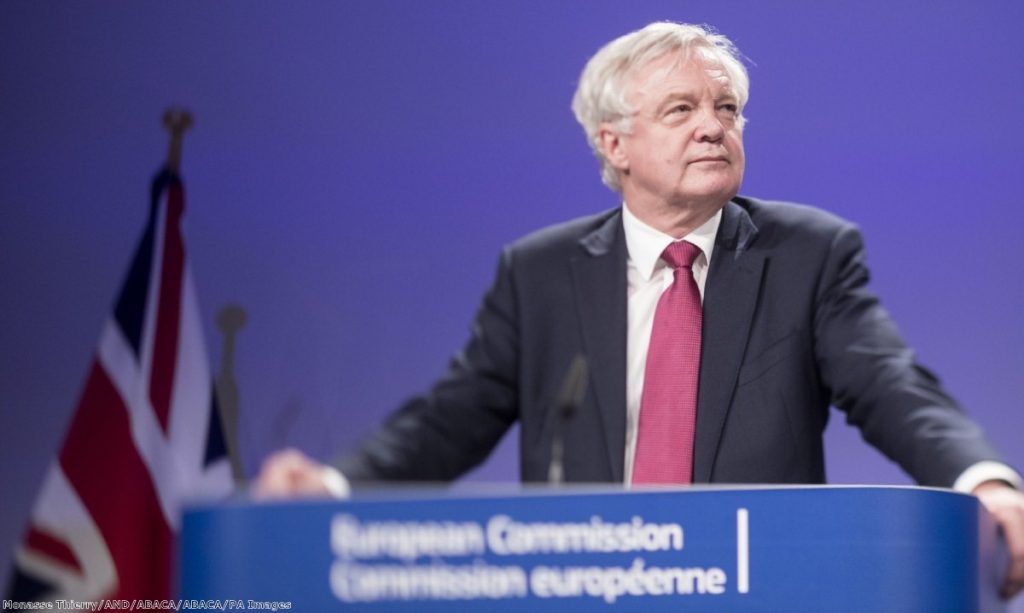The government had a very specific reason for not guaranteeing EU citizens rights ahead of Brexit talks. They insisted it was about hard-headed negotiation. If they unilaterally guaranteed EU citizens' rights in the UK, they would be risking the rights of UK citizens in the EU. They didn't want to do this, they insisted, but they had to – so they could protect the interests of Brits abroad.
That was the rhetoric. But peel it back and the reality is very different. While the EU may not be perfect, it has at least met with British citizens resident in European countries to hear their concerns. David Davis, on the other hand, hasn't even done so once.
British in Europe, which represents UK citizens on the continent, says it has issued "countless" requests to meet with the secretary of state, none of which have been accepted. They've met with Brandon Lewis, immigration minister, Robin Walker, parliamentary under secretary at the Brexit department, and David Jones, junior minister. But they've never been able to meet the man supposedly fighting for their interests in talks with Barnier. This is despite the fact that Brexit-supporting columnists regularly brag about their long phone calls with Davis.
The organisation wrote to Theresa May on the evening of her Florence speech asking to meet her and Davis. No luck. They contacted the Department for Exiting the European Union (DExEU) several times. No luck, on any occasion. They tried to go through ambassadors and use side channels in Berlin and Luxembourg. No luck.


Michel Barnier is another story. Although he supposedly represents a threat to their interests, has met them twice: once on March 28th and again last Tuesday. They expect to meet him again early next year. But they have not been allowed to meet Davis.
That's a shame because Davis should hear their concerns if he is to represent their interests in negotiations, especially now that talks might just have a chance of moving onto phase two. The window of opportunity for them to talk to Davis and communicate their concerns is closing rapidly.

One of their concerns is that Brits in Europe seem set to lose their freedom of movement. Those who want to stay only in their current country of residence will be fine, as will, in all likelihood, those who can show they regularly travel to one other specific country to work. But those who supply services across borders are in serious trouble. That includes wealthy people like bankers and lawyers, but it also includes many on modest incomes: ski instructors, people running catering businesses, struggling young musicians, that type of thing. Without free movement, they're out of a job.
It's not clear if anything can be done about this. But it would have certainly helped if they'd felt that the secretary of state had their corner. Instead, it is up to the citizens themselves to show the kind of solidarity ministers do not seem capable of.
One of the most emotionally reassuring sights in post-Brexit politics is the close cooperation between British in Europe and the 3 Million, which represents EU citizens in the UK. "We do most of the political meetings and a lot of mass lobbies with them," one person at the group tells me. "Our strategy is that we refuse to be played off against each other – which is precisely what both the UK and EU are doing even though they claim not to."
While their governments pitted them against each other, citizens themselves worked together to advance their mutual interests. It's a very pleasant thing to notice and a reminder of how people are usually much more morally sophisticated than the ministers who represent them. Davis could have learned a lot, if he'd bothered to meet them.
A DExEU spokesperson said:
"Safeguarding the rights of EU citizens living in the UK, and UK nationals in the EU, is our first priority in the negotiations. A range of ministers, including Robin Walker and Brandon Lewis, have met with the British in Europe group as well as high ranking officials from DExEU and Home Office. These meetings are part of our continued engagement with relevant groups as we negotiate our exit from the EU."









